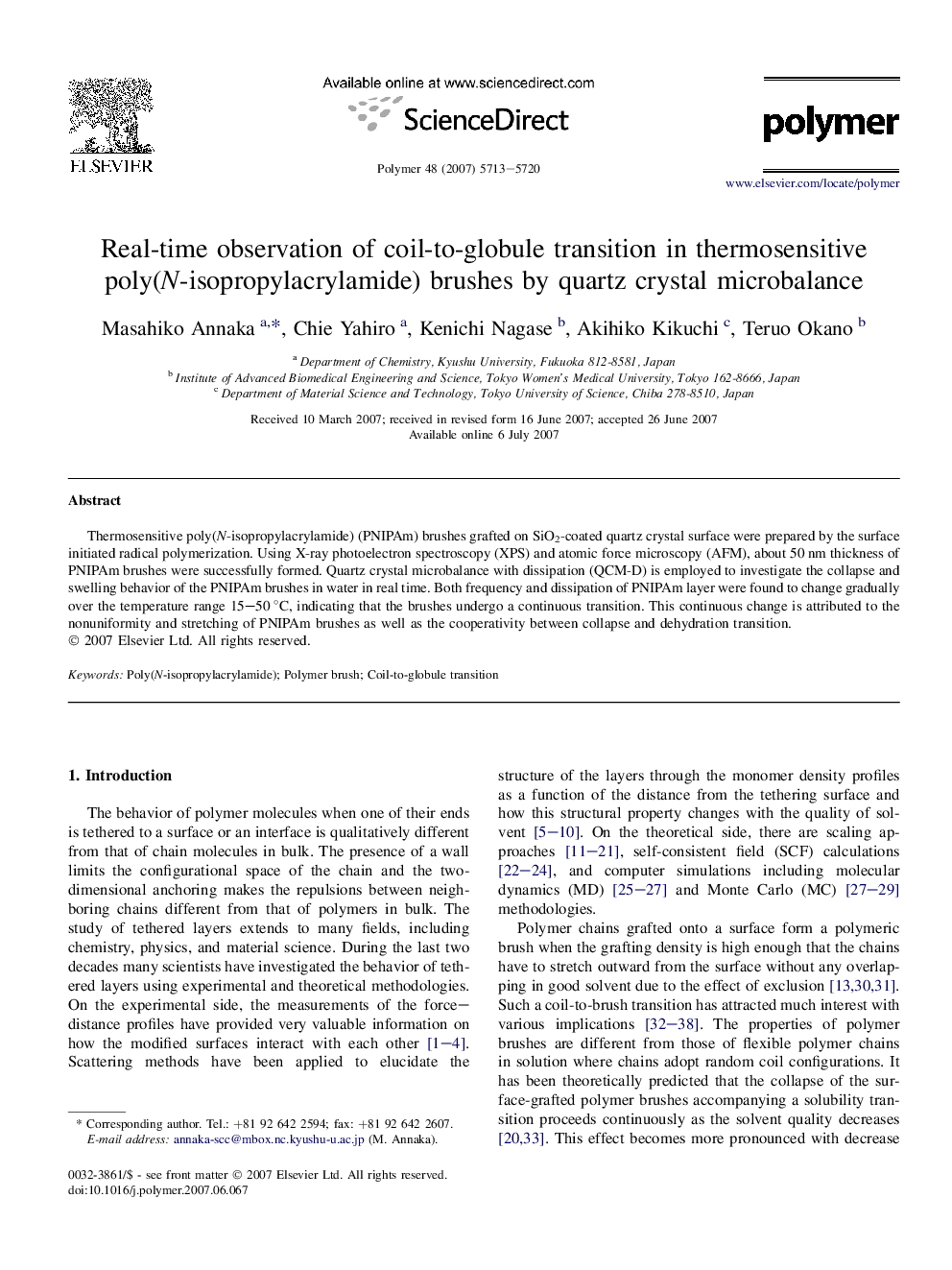| Article ID | Journal | Published Year | Pages | File Type |
|---|---|---|---|---|
| 5189718 | Polymer | 2007 | 8 Pages |
Abstract
Thermosensitive poly(N-isopropylacrylamide) (PNIPAm) brushes grafted on SiO2-coated quartz crystal surface were prepared by the surface initiated radical polymerization. Using X-ray photoelectron spectroscopy (XPS) and atomic force microscopy (AFM), about 50 nm thickness of PNIPAm brushes were successfully formed. Quartz crystal microbalance with dissipation (QCM-D) is employed to investigate the collapse and swelling behavior of the PNIPAm brushes in water in real time. Both frequency and dissipation of PNIPAm layer were found to change gradually over the temperature range 15-50 °C, indicating that the brushes undergo a continuous transition. This continuous change is attributed to the nonuniformity and stretching of PNIPAm brushes as well as the cooperativity between collapse and dehydration transition.
Related Topics
Physical Sciences and Engineering
Chemistry
Organic Chemistry
Authors
Masahiko Annaka, Chie Yahiro, Kenichi Nagase, Akihiko Kikuchi, Teruo Okano,
